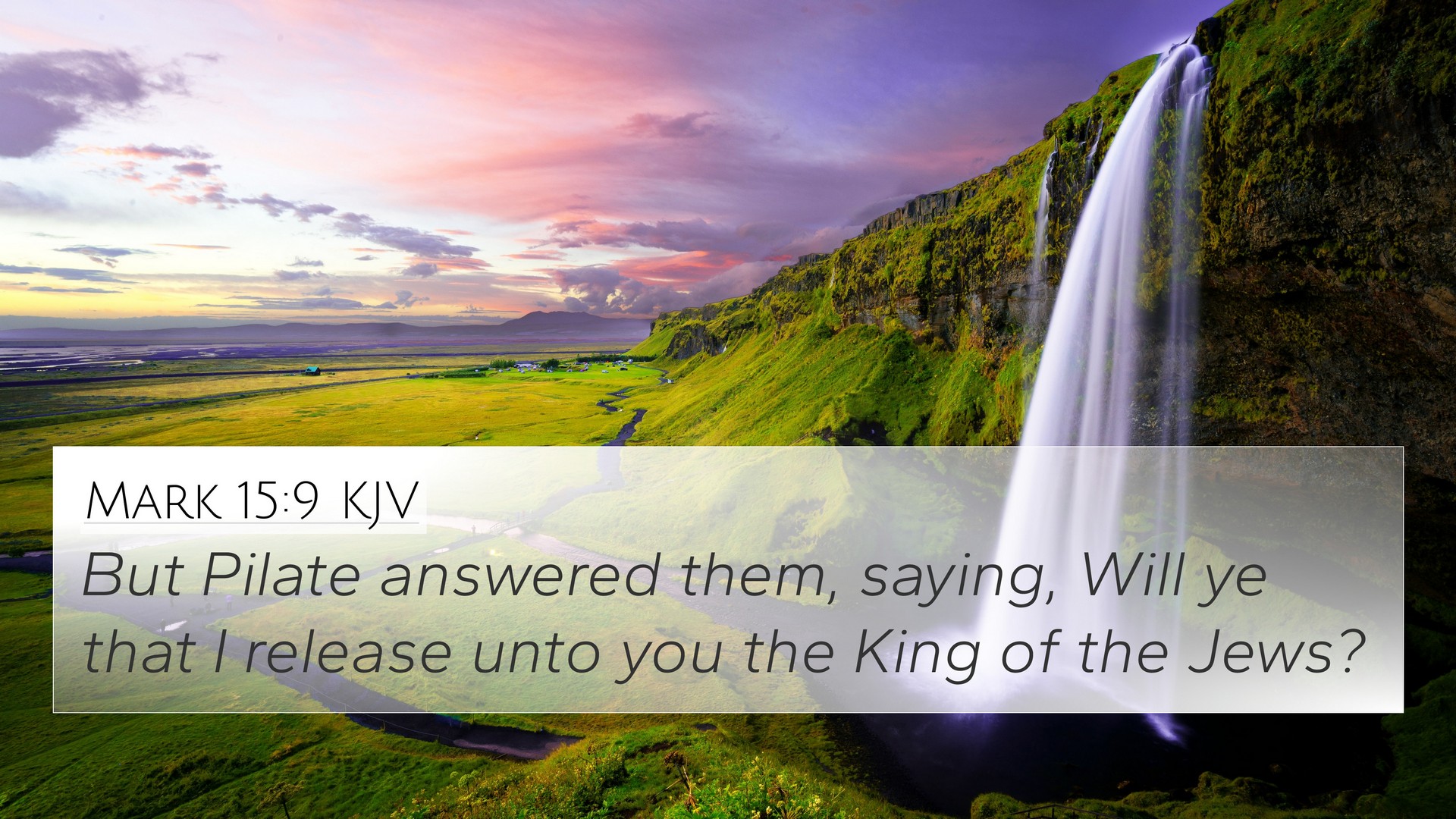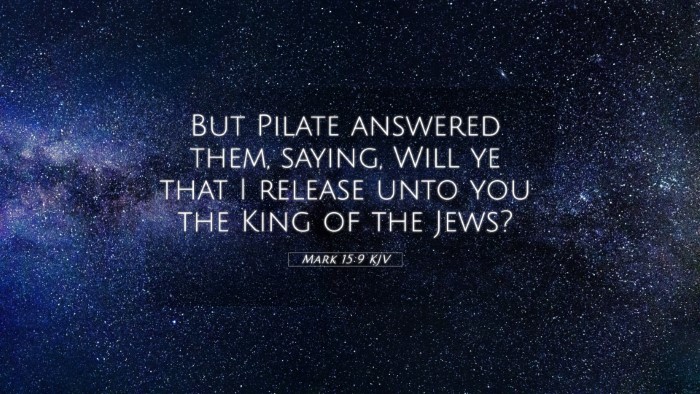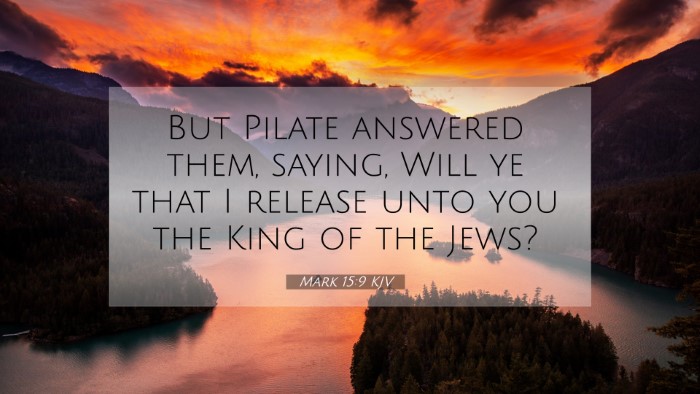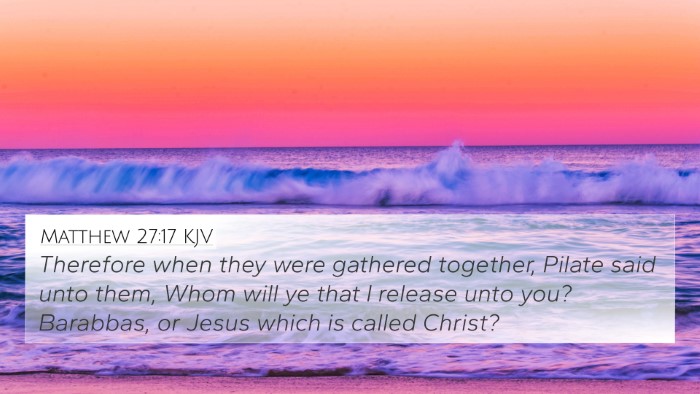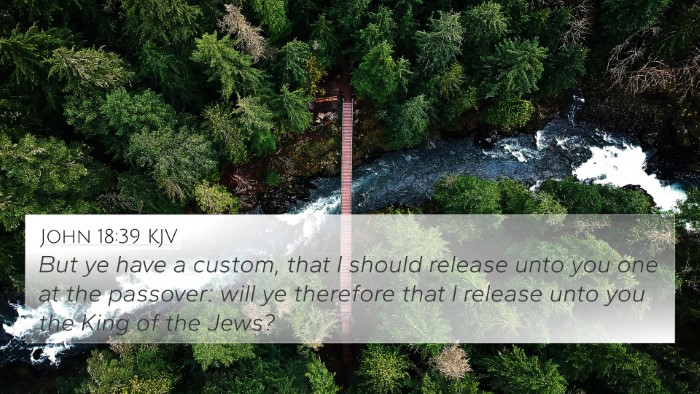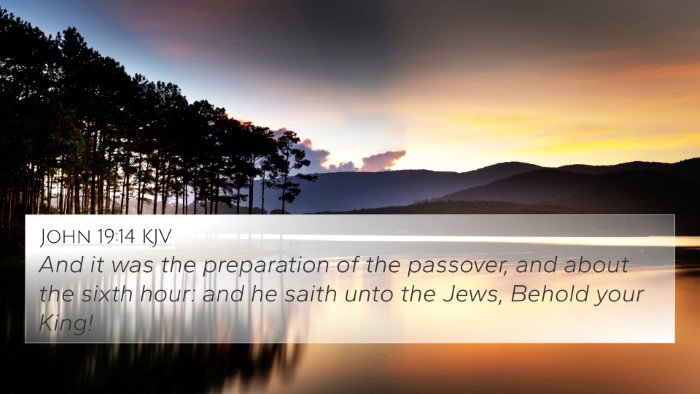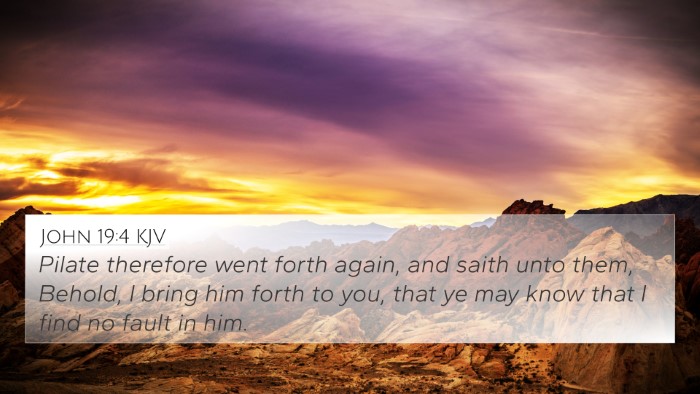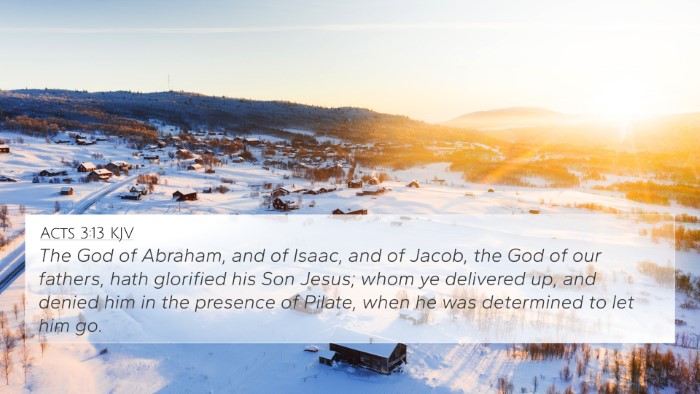Understanding Mark 15:9
Mark 15:9 is a critical verse that illuminates the events leading to the crucifixion of Jesus Christ. This verse states:
“But Pilate answered them, saying, 'Do you want me to release to you the King of the Jews?'”
Contextual Background
This verse occurs during the trial of Jesus before Pontius Pilate, the Roman governor. Mark's Gospel emphasizes the pressure on Pilate, who is caught between a desire for justice and the demands from the Jewish authorities and the crowd.
Meaning and Interpretation
The meaning of Mark 15:9 involves several critical aspects of biblical interpretation:
-
Pilate's Role:
Pilate is portrayed as a reluctant participant in the condemnation of Jesus. His question reveals his awareness of Jesus' innocence and the political implications of the crowd's demand.
-
The Title "King of the Jews":
This title is significant as it highlights the messianic expectations of Jesus, which were misunderstood by the Jewish leaders and the Roman authorities. Jesus, though referred to as a king, embodies a different kind of kingship, one rooted in humility and sacrifice.
-
Pressure from the Crowd:
The request to release Barabbas instead of Jesus illustrates the crowd's misplaced priorities and spiritual blindness, playing into the theme of rejection seen throughout the Gospels.
Commentary Insights
Commentators provide various insights into the implications and significance of this verse:
-
Matthew Henry:
Henry notes that Pilate’s question places a choice before the crowd that reveals their hearts. The insistence on releasing Barabbas symbolizes a choice for earthly freedom over spiritual salvation.
-
Albert Barnes:
Barnes emphasizes the irony in Pilate’s question, as the true King of the Jews stands before them while they fail to recognize His authority. Pilate's query reflects both his confusion and the tension between his role and Jesus' identity.
-
Adam Clarke:
Clarke discusses how this verse elucidates the political intrigue of the moment, showcasing Pilate’s struggle against the volatile emotions of the crowd. It also demonstrates the fulfillment of messianic prophecies regarding Jesus's rejection.
Cross-References
Mark 15:9 can be understood more deeply through cross-references to other Bible verses:
- Isaiah 53:3: “He was despised and rejected by men...” - foreshadowing Jesus’ rejection.
- John 19:14: “Now it was the preparation day of the Passover, and about the sixth hour. And he said to the Jews, ‘Behold your King!’” - Pilate’s recognition of the irony.
- Matthew 27:21: “The governor answered and said to them, 'Which of the two do you want me to release to you?' They said, 'Barabbas!'” - confirming the choice faced by the people.
- Luke 23:18: “And they all cried out at once, saying, 'Away with this Man, and release to us Barabbas'.” - illustrating the crowd's demand.
- Philippians 2:7-8: “But made Himself of no reputation, taking the form of a bondservant…” - contrasting Jesus’ humility with the crowd's desire for a worldly king.
- Acts 3:14: “But you denied the Holy One and the Just, and asked for a murderer to be granted to you.” - Peter’s recollection of the event indicates its significance in the early church's preaching.
- Mark 15:15: “So Pilate, wanting to gratify the crowd, released Barabbas to them...” - showcasing Pilate's capitulation to public will over justice.
Thematic Connections
The themes presented in Mark 15:9 resonate through various sections of the Bible:
- Rejection of Christ: Seen throughout the Gospels, culminating in the crucifixion.
- Political and Spiritual Conflict: The clash between Jesus’ teachings and the expectations of religious leaders.
- Choice and Free Will: The importance of choice in accepting or rejecting God's providence.
Conclusion
Mark 15:9 serves as a pivotal moment that underscores the tragic irony of Jesus' trial. It compels readers to explore the complexities of human choice and the profound implications of rejecting divine authority. The connections made through cross-referencing scriptures enhance understanding and reveal the unified message of salvation woven throughout the biblical narrative. This verse ultimately beckons believers to reflect on their response to Christ's kingship and the choices they make in light of His sacrifice.
